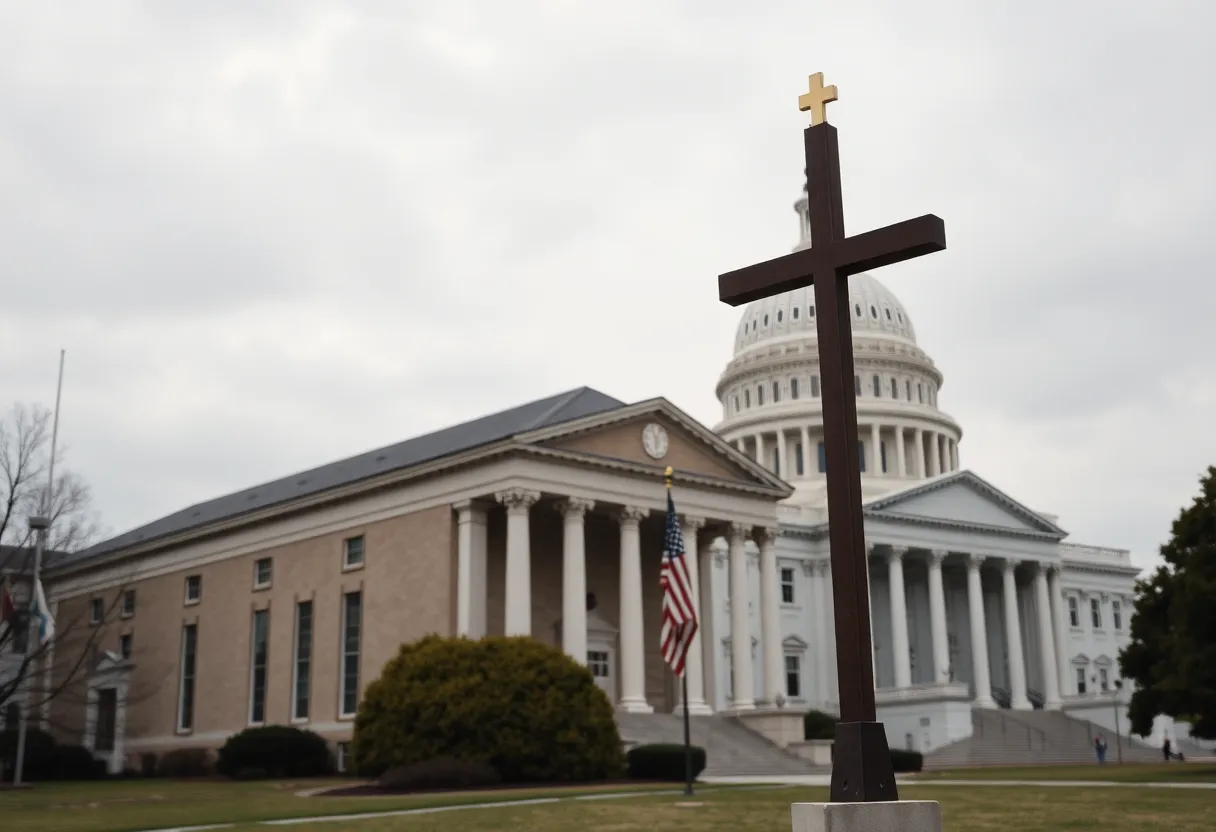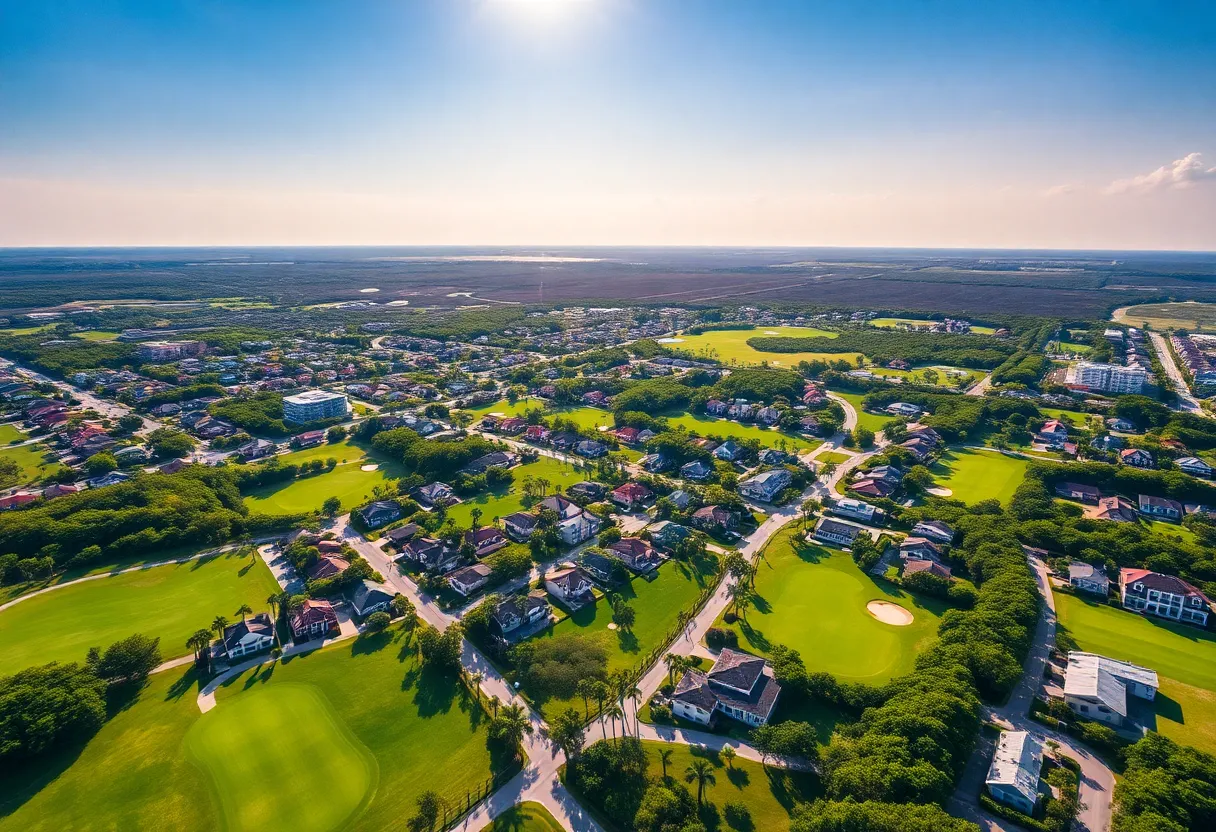News Summary
The separation of church and state in the U.S. is increasingly challenged, especially during Trump’s presidency, as Christian nationalism gains traction. Key political figures openly express their faith, blurring the lines between religion and governance. Notable events highlight how Christianity influences political rhetoric and policies. Critics warn that imposing Christian values could undermine coexistence, while supporters argue for a return to founding principles. Recent surveys indicate a rise in Americans identifying as Christian nationalists, sparking debates about faith’s role in public policy.
Blurring the Lines in U.S. Politics: The Rise of Christian Nationalism
It seems that the lines separating church and state in the United States are becoming quite blurry, especially during the presidency of Donald Trump. And this trend is hard to miss! The guiding principle of the First Amendment, which says that Congress can’t establish a religion or restrict free exercise of it, might be losing some of its traditional footing.
Open Expressions of Faith in Government
Recently, key officials within Trump’s administration have been quite vocal about their Christian beliefs. A notable example occurred at the memorial for Charlie Kirk, which President Trump described as an “old-time revival” instead of merely a funeral. This choice of words sets the stage for the kind of religious fervor that many in attendance expressed during various speeches.
At this event, Trump and other significant political leaders, including Vice President JD Vance, emphasized just how crucial Christianity has been in rallying support for government initiatives. The speakers infused their talks with religious themes, suggesting that government roles align closely with some type of divine purpose. Such sentiments are becoming not just common but celebrated within some circles of U.S. politics.
Divine Purpose and Political Warfare
One standout moment was when Stephen Miller, a White House adviser, proclaimed that “we are on the side of goodness” and “we are on the side of God” in remarks promising retribution against political enemies. This combative tone is often interwoven with religious messaging, making the separation of politics and faith even more questionable.
To add to the dramatic atmosphere, Secretary of State Marco Rubio took to the stage to deliver what many could only describe as a sermon on the Second Coming. Moments like these raise eyebrows and invite critique as they blur the line further between faith-based principles and political agendas.
Christian Nationalism Gains Ground
The concept of Christian nationalism is becoming increasingly mainstream, as advocates argue that the United States was established as a Christian nation and that Christian principles should undergird its laws. Under Trump’s administration, numerous policies and actions reflect Christian nationalist viewpoints.
Trump has publicly championed the idea of protecting prayer in public schools during events, like his speech at the Museum of the Bible in Washington, D.C. This illustrates a continuing trend to legislate based around certain religious ideas. He even met with the Religious Liberty Commission to discuss challenges to religious freedoms, pointing fingers at past actions taken by the Justice Department against anti-abortion protesters as anti-Christian bias.
A Shift in Church-State Dynamics
Furthermore, recent IRS rulings have allowed churches endorsing candidates to still keep their tax-exempt status, which many argue paves the way for greater blending of political and religious spheres. Even federal workers are gaining the green light to promote their religious beliefs at work, underlining the significant shift in this landscape.
The Growing Influence of Christian Leaders
Leaders within the Christian community are also becoming bolder. At events like the Texas Faith Fest, some political figures are encouraging pastors to embrace the politics within their sermons. This includes criticism of what they perceive as the political left attempting to “co-opt Christianity,” emphasizing a call to arms for conservative pastors to defend their beliefs.
According to research from the Public Religion Research Institute in 2024, nearly 30% of Americans identify as Christian nationalists or sympathizers, with the numbers rising even higher in Southern states. This growing acceptance is leading to contentious debates about whether Christian values should dominate U.S. public policy.
Critiques of Blurred Lines
However, not everyone agrees with this blend of faith and politics. Critics, like Rep. James Talarico, warn that the Christian nationalist movement risks imposing values over coexistence. Talarico, along with others, believes that asserting a dominant Christian ideology is a misunderstanding of what Christianity truly stands for.
As discussions continue, the ongoing debate about the definition and role of Christian nationalism in the American political landscape showcases the diverse and often conflicting views among politicians and citizens alike.
Deeper Dive: News & Info About This Topic
- The New York Times
- The New Yorker
- Houston Chronicle
- Encyclopedia Britannica: Christianity and Politics
- CNN

Author: STAFF HERE ORLANDO WRITER
ORLANDO STAFF WRITER The ORLANDO STAFF WRITER represents the experienced team at HEREOrlando.com, your go-to source for actionable local news and information in Orlando, Orange County, and beyond. Specializing in "news you can use," we cover essential topics like product reviews for personal and business needs, local business directories, politics, real estate trends, neighborhood insights, and state news affecting the area—with deep expertise drawn from years of dedicated reporting and strong community input, including local press releases and business updates. We deliver top reporting on high-value events such as Orlando International Fringe Theatre Festival, Megacon Orlando, and Central Florida Fair. Our coverage extends to key organizations like the Orlando Economic Partnership and Hispanic Chamber of Commerce Metro Orlando, plus leading businesses in leisure and hospitality that power the local economy such as Walt Disney World Resort, AdventHealth, and Universal Orlando. As part of the broader HERE network, including HEREJacksonville.com, HEREPetersburg.com, HERETallahassee.com, and HERETampa.com, we provide comprehensive, credible insights into Florida's dynamic landscape.




